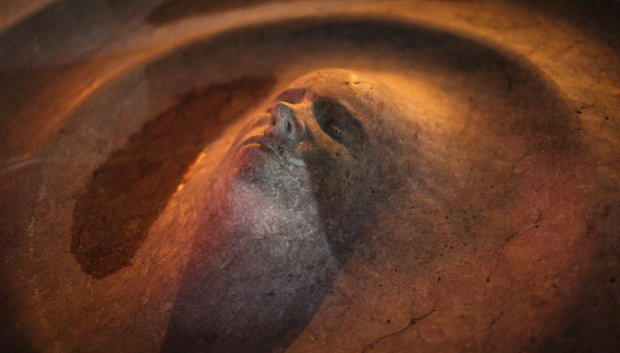28 Mar 2014 | News and features, Politics and Society, Religion and Culture, United Kingdom, Young Writers / Artists Programme
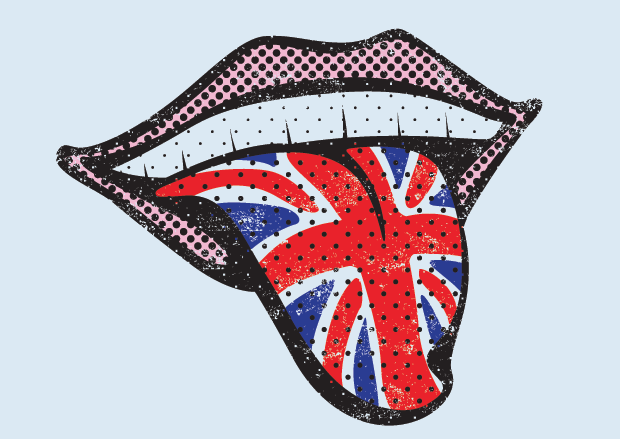
(Illustration: Shutterstock)
“The media tells you what to think!”
That’s a basic criticism of Western journalism, whether it’s of the “CNN controls your mind” or “Left Liberal Elites have monopolised the agenda” variety. Most people reject this, rightly, as a straw-man. We pride ourselves on our ability to sift information, reject weak arguments and come to our own points of view.
A more worrying criticism is that the news directs what you think about. Decisions to give Story X prominence and headlines, and to bury or spike Story Y, mean most of us can only encounter X. Newsworthy stories become obscure if drowned out by others or omitted entirely. We’re denied investigation or campaigning on vital issues because nobody knows they exist.
In Britain this is not what we typically mean by ‘censorship’, not the recourse of despots or prudes. Nevertheless, self-censorship with market and readership in mind denies all but the most devout news-addict important stories. And without the news we can’t have comment pieces, columns, Twitter debates and opinion blogs.
Consider the EuroMaidan protests in Kiev through spring. Coverage gave the impression of a pro-EU crowd led by a heavyweight champion, with a worrying fringe of violent nationalists – Svoboda and Right Sector. This followed the ‘mainstream-extremist’ simplification presented in Egypt, Syria and Libya. Other crucial groups were ignored: LGBT activists set up the protest’s hotlines, feminists ran the makeshift hospitals, Afghan war veterans defended them.
The world’s focus on Kiev and Crimea drove other issues from the spotlight. The Syrian civil war has hardly featured recently, but that conflict has far more casualties, worse upheaval and more immediate consequences for Britain. Refugees are currently en route to claim asylum – this is the last we heard. Similarly, the Philippines dominated the winter’s news after Typhoon Haiyan. Now it’s forgotten in favour of flight MH370 despite the catastrophic ongoing humanitarian crisis, again with more lives at stake.
The Arab Spring is itself a good example of one narrative deafening public consciousness. How many of us knew that at the same time as protests ignited Yemen and Syria in July 2011, Malaysia’s government gassed peaceful crowds and arrested 1,400 protesters after tens of thousands marched for electoral reform? It’s tempting to wonder whether greater coverage, and greater international pressure, could have supported the democratic reforms demanded.
Closer to home, consider the brief uproar caused by the 2013 UK policing bill, drafted to outlaw ‘annoyance and nuisance’ and give police arbitrary powers to ban groups from protest areas. Although the drafts were publicly available, and campaign groups voiced outrage swiftly, left-wing papers took notice only after the bill had passed the Commons. The bill was softened, not by popular pressure or national debate, but by a few conscientious Lords.
Readers could forgive the media for prioritising other stories if they are more pressing. When headlines are crowded by non-events, however, this seems a poor excuse. The British news spectrum was recently obsessed with Labour politicians Harriet Harman and Patricia Hewitt, who worked for the National Council for Civil Liberties (now ‘Liberty’) in the 1970s. That council granted affiliate status to the now-banned Paedophile Information Exchange (PIE). The Daily Mail made a huge splash about its PIE investigation in February, despite uncovering no new information. That paper alone had reported the same story in 1983, 2009, 2012 and 2013. Eventually the BBC, online world and print media all covered the controversy, meaning more worthy issues lost precedence.
Madeleine McCann has dominated countless front pages, reporters chewing over the barest scraps of Portuguese police leaks. No real progress has been made for years. Pundits admit the story retains prominence largely because the McCanns are photogenic, and similar stories would have fallen off the agenda. There are hundreds of similar unsolved child disappearances, just from the UK. Drug scares, MMR vaccine hysteria, celeb gossip and royal gaffes (not to mention Diana conspiracies) complete the non-story roster.
If this seems regrettable but harmless, consider sexual violence. Teacher-child abuse, violent assaults and gang attacks deserve coverage, but their sheer news monopoly perpetuates the public’s false idea of ‘real rape’. Most sexual abuse is between couples or acquaintances: campaigners have shown the myth that ‘real rape’ must involve a violent stranger impedes both prosecution and victim support.
There is no silver bullet, just as no one news organisation can really be blamed for censorship by omission. Few people want or need constant updates on upheaval in South Sudan or Somalia – but we could be reminded they’re happening at all. Editors will always reflect on what is vogue, what will sell, and a diverse free press ensures a broad range of stories. Perhaps the rise of online citizen-reporting can bridge the gap. Nevertheless, the danger of noteworthy events falling into obscurity should niggle at the back of the mind – for those who know enough to think about it.
This article was posted on March 28, 2014 at indexoncensorship.org
11 Mar 2014 | Europe and Central Asia, News and features, Russia
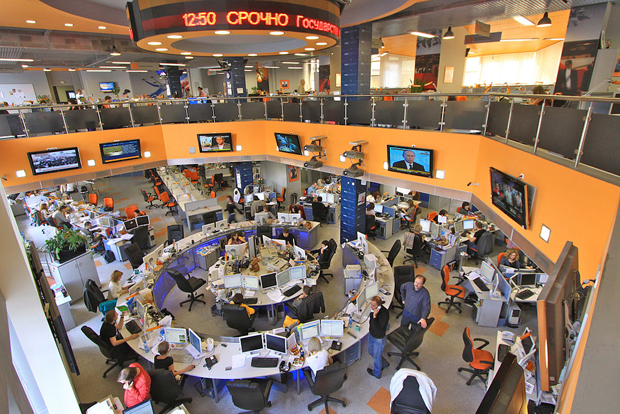
RIA Novosti newsroom (Image: Jürg Vollmer/maiak.info Reusse/Wikimedia Commons)
“I just got fired,” a RIA Novosti journalist told Index a few days ago. On 9 December 2013, a surprise decree by president Putin ordered the closure of the state-owned, 73-year-old RIA — one of Russia’s most established news services. It’s liquidation has now kicked in, and it will be replaced by a new agency named Rossiya Segodnya (“Russia Today”), headed by Dmitry Kiselyov, who made his name as an abrasive Kremlin-loyal television personality. Employees have had to choose between staying at the replacement agency or sign redundancy contracts. Most journalists at RIA’s well-respected English service are leaving. They have no intention of taking orders from Kiselyov, who is famous for his homophobic and anti-Western rants. He once said, on TV, that “fining gays is not sufficient — they should not be allowed to give blood, or sperm and in case of a car accident, their hearts should be burnt or buried as useless”.
With 60 offices abroad, RIA was a vast media empire presenting a wide range of information. In April 2013, over 9 million internet users visited its website, which made it the 11th most popular European news website. Christopher Boian, who directed RIA’s foreign language news website and helped make it more dynamic and more respected, told Index: “This was a big state-owned media outlet. It was unique. It seemed to reflect a maturity about the Russian media. We were not anti-Putin or pro-Putin but just trying to look objectively at what was going on.”
Rossiya Segodnya will share its editor in chief with the Kremlin-funded TV news channel RT. It is unlikely to strive for objectivity. In his first speech at RIA’s office, Kiselyov declared: “[Russia’s] post-Soviet journalism is unlike Western journalism in that it does not reproduce values, it produces them.” And added: “Objectivity is a myth which is proposed and imposed on us. Imagine a young man puts his hand on the shoulder of a girl, and in the best case, says ‘you know, I have long wanted to tell you that I regard you objectively.’ Is that what she is expecting? Not likely. In the same way our country — Russia — needs our love.”
In January, Dozhd, a popular independent TV channel which came to prominence for its coverage of anti-government protests in late 2011, was dropped by satellite and cable operators after it caused outrage publishing a poll asking readers whether Leningrad should have been surrendered to the Nazis in order to save hundreds of thousands of lives. Putin’s press secretary Dmitry Peskov declared that the “station had crossed all the limits of what can be tolerated” and that the question posed by the survey was an offence “much more serious from the point of view of morality and ethics”. The channel has now lost around 80 per cent of its audience and, as a result, most of its advertisers. It’s facing imminent closure.
“The situation does not look promising. Things seem to have been orchestrated, as five independent operators dropped us in a matter of weeks, but we can’t prove they have been,” Pavel Lobkov, a veteran journalist who was dismissed from federal channel NTV in 2012 — for what he alleges were political reasons — and found a new home in Dozhd, tells Index. “When it comes to the press, the threat is not direct anymore. The strategy is now more refined. It’s like chess”, he adds.
In February, Ekho Moskvy (Echo of Moscow), one of Russia’s few independent broadcasters, majority-owned by Gazprom-Media — the media arm of the gigantic conglomerate that is one of the bases of Kremlin power — encountered difficulties. Its head was dismissed and replaced by an editor from state media, after a reshuffling of the board of directors tilted the balance in favour of pro-government people. Alexei Venediktov, Ekho’s long-standing editor, has just been reelected by the journalists at the station, though his position still needs to be approved by the board.
“As soon as Putin became president, he moved against the media and made sure national TV was under control – which proved to be a very effective tool,” Maria Lipman, chair of the Carnegie Moscow Centre’s Society and Regions Program, told Index. Financial and legal leverage was used to shut down media outlets that were seen as potential threats. In 2000, the independent TV channel NTV — which had been critical of the war in Chechnya — was acquired by Gazprom-Media, its owner forced to flee the country and its editorial line changed. “What remained were oases of non governmental media. The government was permissive because there was no political opposition. You could make noise, but no one would pick it up,” Lipman adds.
According to her, a new crackdown began in 2012 with the return of Putin to power in the wake of big protests. A series of dismissals took place and a few publications closed down — always explained by economic factors. “Gradually there was a sense that the realm of free expression was shrinking, that there were fewer jobs to be found and more self censorship,” she says.
The recent years have seen an unprecedented increase in the concentration of media ownership, with huge media properties accumulating in the hands of a few Kremlin loyalists. These include Yuri Kovalchuk, a member of Putin’s close circle dubbed “Russia’s Murdoch”, who owns the National Media Group, or Alisher Usmanov, Russia’s richest man (who fired the editor of Kommersant Vlast in 2011 for having published pictures with anti-Putin slogans in an issue alleging election fraud). Usmanov recently acquired control over VKontakte, Russia’s largest social network, whose founder has left Russia. Lobkov tells me he believes the Kremlin’s next target will be the internet. In January, parliament passed a law giving the state powers to close blacklisted websites.
“The Kremlin has been sophisticated enough not to go against individuals or editors. Its favourite tool is to exert its influence through media owners,” Lipman says, pointing out that not every case of pressure against a media outlet necessarily comes from the government, as there are “competitions, personal scores, a combination of factors.” Dozhd owners say their troubles started after they reported on the expensive properties owned by certain Kremlin officials.
“Following recent events in Ukraine, the propaganda on national media has been extremely intense. State media has presented the picture of a fascist coup inspired by the west. For anyone interested there is no shortage of information on the web. When the crisis subsides it remains to be seen whether the outlets that have covered it in a different fashion will be punished,” Lipman says.
Last week, Izvestia newspaper reported that a United Russia party deputy is readying legislation that would, among other things, make it a crime to “allow publications of false anti-Russian information.” The tightening of control over the Russian media is likely to continue.
This article was posted on March 11, 2014 at indexoncensorship.org
7 Mar 2014 | News and features, Religion and Culture, Ukraine, Young Writers / Artists Programme
As the Euromaidan protests gripped Ukraine, French street-artist Roti travelled to Kiev. He was eager to support protesters who were struggling with a violent police response to their government’s tilt toward Russia.
For months Roti had worked on an idea for a sculpture: A woman emerging out of water. The concept, which was originally meant for Paris, took on new meaning as the demonstrators in Kiev became set on revolution.
Roti cast his idea in marble and the sculpture, New Ukraine, became an allegory for Euromaidan protesters. The woman’s face, toes and hands protruded from the block of stone. As she struggled for freedom, she created ripples in the stone surrounding her – after all, discontent spreads.
On January 7, 2014, the artist illegally installed his work at the center of Kiev’s Independence Square. “It’s a gift. Not to a nation but to its people”, Roti declared. His intentions were clear. The work came as attacks on journalists and protesters became more and more regular. New Ukraine was a symbol of hope and progress at a time when resolve could have easily wavered.
The night of the installation, protesters celebrated by dancing and singing in the street. Confidence seemed momentarily rejuvenated. In the following weeks clashes between police and protesters would claim their first lives.
New Ukraine is not the only street-art to offer support to the Ukrainian people. Graffiti decorates Kiev’s main square – crossed out swastikas and the slogan “BIG BROTHER IS WATCHING YOU” have become common features.
During protest, street-art becomes a barometer of social consciousness. Scrawled words and images on city walls reflect changing attitudes and a disdain for the ruling authority. The stencils of President Yanukovych’s body, punctured with bullet holes, were a more extreme example.
Like the ripples of New Ukraine, street art spread ideas through Kiev and further afield. With Twitter and Reddit offering a more collective version of the news, artists’ efforts escaped the borders of Ukraine and communicated their message to the global community. They achieved impact through imagery and reached a more diverse audience than most newspapers.
It was on Reddit that I discovered a photograph of a police barricade. It had been painted with a cartoon depicting a Ukrainian flag holding hands with a European flag as Russia looks on, scowling. The message was simple but memorable.
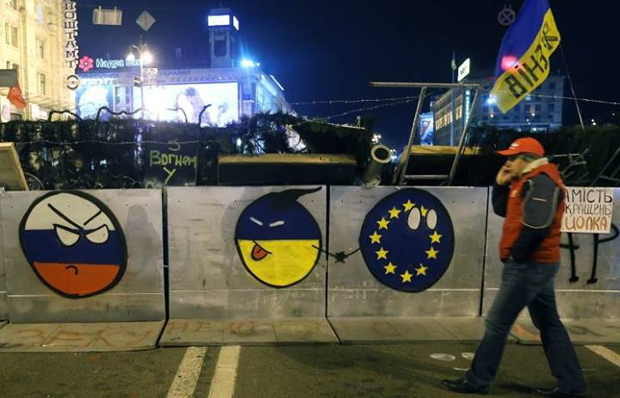
Protest posters also played an important role in boosting morale. Displayed around Kiev during the early days of the crisis, they highlighted the government’s inconsistencies and the power of the Ukrainian people. Of course, the country’s flag’s blue and yellow is the overriding color theme. Pairing graphic design with emotionally engaging political statements – “I am a drop in the ocean” – these works were incredibly empowering.
With a selection of these posters currently on display in Edmonton, Canada, it’s easy to see how imagery has the power to spread a political message. The exhibition features 50 designs which were posted around Ukraine. Each work was designed to encourage their audience to identify emotionally while keeping the message clear.
Artists use symbolism to monumentalise protesters’ efforts. With museums and galleries filled with artist’s renditions of historical events, we are programmed to link iconic moments with art. As creativity littered Kiev’s Independence Square, demonstrators were spurred on – the art around them transformed Euromaidan into a very stirring moment. Demonstrators were reminded: Here is the chance to make history.
Although they have since been annulled, anti-protest laws and restrictions on social media revealed the extent of how close Ukrainians came to losing the right to express themselves.
But on the streets, ideas would have continued to appear on walls and barricades. Street-artists cannot be tracked by algorithms. During times of crisis, they will always be on hand to support the people and spread their message.
This article was published on March 7, 2014 at indexoncensorship.org
7 Feb 2014 | Europe and Central Asia, News and features, Russia
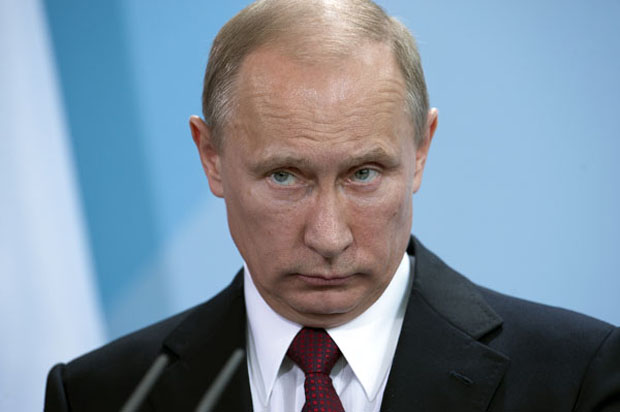
(Image: Gonçalo Silva/Demotix)
The Sochi Winter Olympics opening ceremony is taking place today, and organisers have declared that a record 65 world leaders are attending. But numbers alone don’t tell the whole story. As it turns out, some of the biggest names in global politics will not be in the stands cheer on their athletes as the games are officially kick off. Indeed, quite a few won’t be taking the trip to Sochi at all. Barack Obama is sending a delegation including openly gay figure skater Brian Boitano in his place, and Angela Merkel, David Cameron and Francois Hollande are also staying away.
But while the International Olympic Committee’s Thomas Bach was less than impressed by the apparent boycott, labelling it an “ostentatious gesture” that “costs nothing but makes international headlines”, the absence of the big guns does give the lesser-known world leaders a chance to shine. Not all guests have been confirmed, but we’ve got the low-down on some of the the leaders the cameras might pan to during today’s festivities, or who could be spotted in the slopes over the coming weeks.
Alexander Lukashenko
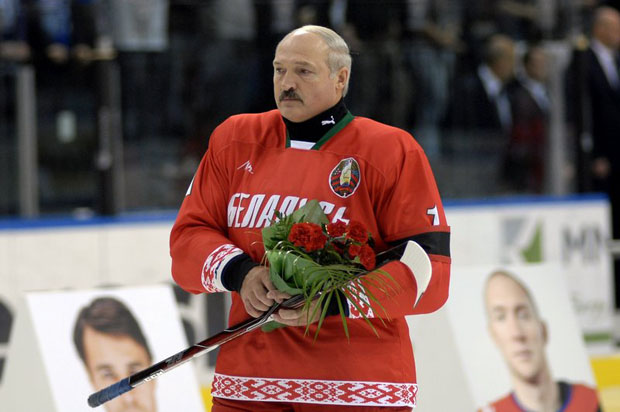
(Image: Ivan Uralsky/Demotix)
Putin’s long time colleague and fellow ice hockey enthusiast surely wouldn’t miss the Winter Olympics for the world. The Belarusian president is known as “the last dictator in Europe”, his near 20 years in power having passed without a single free and fair election. Under his leadership, peaceful protests have been violently dispersed, and civil society activists and political opposition — including rival candidates from the 2010 presidential elections — have been jailed. A brand new report from Index also concludes that: “Belarus continues to have one of the most restrictive and hostile media environments in Europe.”
Recep Tayyip Erdoğan

(Image: Philip Janek / Demotix)
The Turkish president made global headlines last summer, over his regime’s violent crackdown on the peaceful Gezi park demonstrations. Rather than accepting the protests were a manifestation of genuine grievances by his people, he blamed “foreign hands” and their “domestic collaborators” like many a less-than-democratic leader before him. His government was recently implicated in a big corruption scandal, and only yesterday, parliament approved controversial amendments to the country’s internet law. The new law, opposed by civil society, the opposition and international organisations alike, gives the government wide-reaching powers over the internet, effectively allowing them to block websites without court rulings, and gives them access to user data.
Viktor Yanukovych
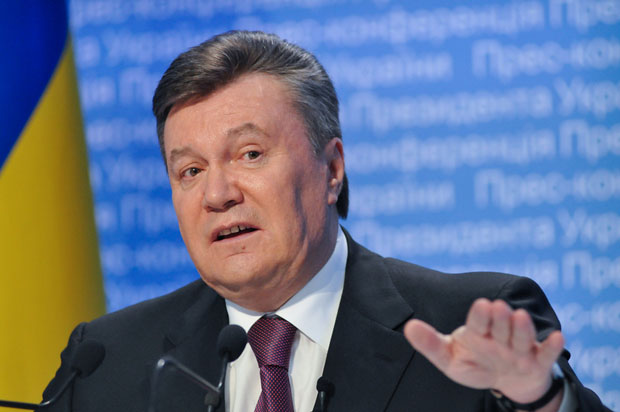
(Image: Oleksandr Nazarov/Demotix)
The Ukrainian president’s failure to sign a treaty securing closer ties with the EU in November, sparked the country’s ongoing Euromaidan protests. The authorities response was heavy handed — police clashed with demonstrators and journalist were targeted, leading to international condemnation. They authorities even briefly implemented a highly repressive new law, among other things allowing security services to monitor the internet, and defining NGOs receiving funding from abroad as “foreign agents”. The law was, however, scrapped only days later following outrage from civil society. Meanwhile,Ukraine’s Prime Minister and government also stepped down, while Yanukovych took four days off ill. He’s back in the office now — just in time head to Sochi for a much-hyped meeting with Putin.
Nursultan Nazarbayev
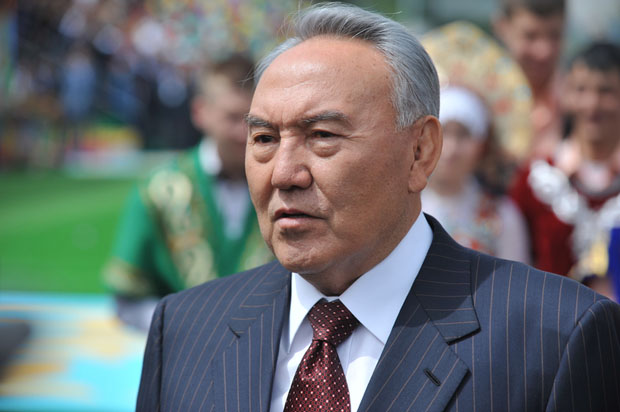
(Image: Vladimir Tretyakov/Demotix)
Kazakhstan’s president has been in power since 1991, and during that time, allegations of human rights abuses, including attacks on demonstrators and independent media, as well as widespread corruption have been regularly levelled at him. In 2012, following clashed between the police and striking workers, the president, who already effectively controls the legislature and the judiciary, further extended his emergency powers. But Putin wouldn’t even be his only high-flying friend. In September, Kanye West performed at his grandson’s wedding. The reported price tag? $3 million. Did I mention the accusations of corruption? Meanwhile, former British prime minister Tony Blair spent two years advising Nazarbayev and his government on democracy and good governance — a deal which “produced no change for the better or advance of democratic rights in the authoritarian nation”.
Emomali Rahmon
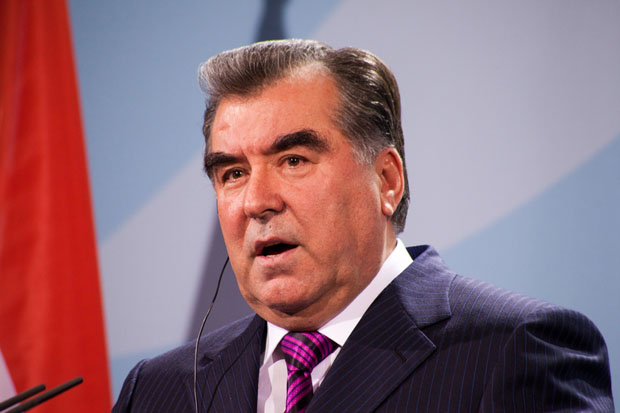
(Image: Riccardo Valsecchi/Demotix)
He has been the head of the government of Tajikistan since 1992, and was in power during the country’s civil war, where 100,000 people lost their lives. Allegations of human rights abuses, including torture by security forces and arbitrary arrests, are widespread. Much of the media is state-controlled, and independent journalists face violence and intimidation. “Publicly insulting the president” can see you jailed for as long as five years. Recently, a prominent member of the opposition, Zaid Saidov, was sentenced to 26 years in prison following what has been described as a “politically motivated trial”. In Sochi, he is set to meet with not only Putin, but also Chinese leader Xi Jinping.
This article was posted on February 7 2014 at indexoncensorship.org



